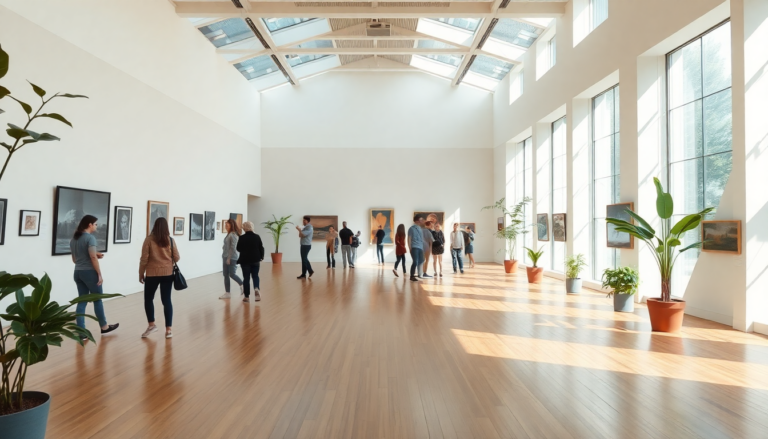Argomenti trattati
Amidst the hustle and bustle of modern life, many seek solace in nature, art, or engaging activities. Recent research has shed light on how museum visits can serve as a powerful antidote to anxiety and stress. Conducted by Bocconi University in Milan, this study unveils a significant connection between cultural experiences and psychological well-being, suggesting that wandering through the halls of art galleries or museums can be more than just a leisure activity—it can be a form of therapy.
The surprising benefits of museum visits
The findings from Bocconi University challenge the conventional notions of relaxation typically associated with spa days or yoga classes. Instead, it suggests that immersing oneself in art can yield profound benefits for mental health. According to the study, individuals could experience a reduction in anxiety and stress levels by up to 25%, particularly when combined with mindfulness practices. This revelation aligns with previous scientific evidence advocating for the positive impacts of art on emotional well-being.
The research was part of the ASBA project, which stands for Anxiety, Stress, Brain-Friendly Museum Approach. Participants engaged in guided mindfulness paths within art galleries, and the results were striking: experiencing art mindfully acted as a gentle yet powerful remedy for stress. Interestingly, even a simple guided tour led to a 20% decrease in stress levels, emphasizing the calming influence of art in various forms.
Art as a living space for emotional well-being
Todays’ museums transcend their role as mere repositories of art; they are evolving into vibrant spaces that profoundly impact our emotional health. Art communicates with both the heart and the nervous system, slowing our breath, lowering heart rates, and helping us regain balance in a fast-paced world. In this sense, visiting a museum can feel like hitting the “pause” button on life—allowing the mind to slow down, the heart to find rest, and the spirit to rejuvenate.
Real-world applications of art therapy
Supporting this trend, the town of Carrara in Tuscany is leading the way by utilizing art as a therapeutic tool. Since 2023, local museums have introduced art therapy programs aimed at individuals with dementia and their caregivers. This initiative is part of the regional effort, Tuscan Museums for Alzheimer’s, and highlights how cultural institutions are prioritizing visitor experience.
Every Saturday morning, the academy opens its doors to the public, fostering a deeper connection between creative processes and art enthusiasts. While this doesn’t replace medical therapies, the growing evidence suggests that engaging with art can significantly assist those grappling with anxiety. In a world that often demands multitasking and relentless productivity, taking a few hours to immerse oneself in art can be a vital step toward realignment.
Emerging trends in museum experiences
The research reflects a broader trend among museums, which are increasingly offering immersive experiences, slow-paced visits, and meditative tours. These initiatives cater to the growing desire for mindful engagement with art, allowing visitors to savor each moment rather than rushing through exhibits. This shift not only enhances individual well-being but also promotes a deeper appreciation for the arts.
As museums continue to evolve, they become more than just places to view art; they transform into sanctuaries for healing and introspection, where the simple act of observing can lead to profound internal shifts. Whether it’s through a quiet moment spent in front of a painting or an engaging discussion during a guided tour, the connection between art and mental health becomes increasingly evident.
The path ahead
As we navigate the complexities of modern life, the role of museums in enhancing our mental health will likely continue to grow. The calming power of art, when experienced mindfully, has the potential to create a ripple effect of positive change in our well-being. With more institutions recognizing the therapeutic potential of their offerings, the future of cultural experiences looks promising, inviting everyone to explore the intersection of art and mental health.

